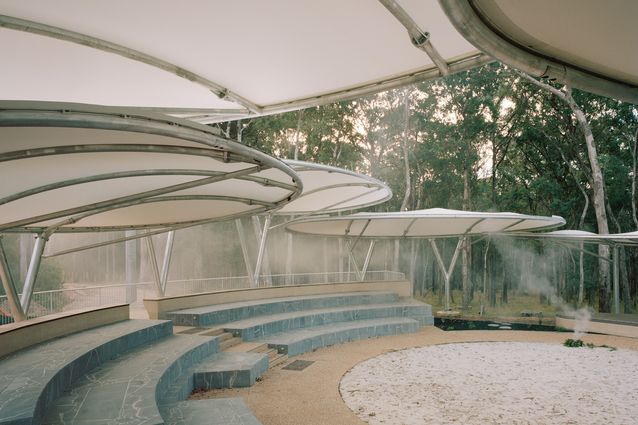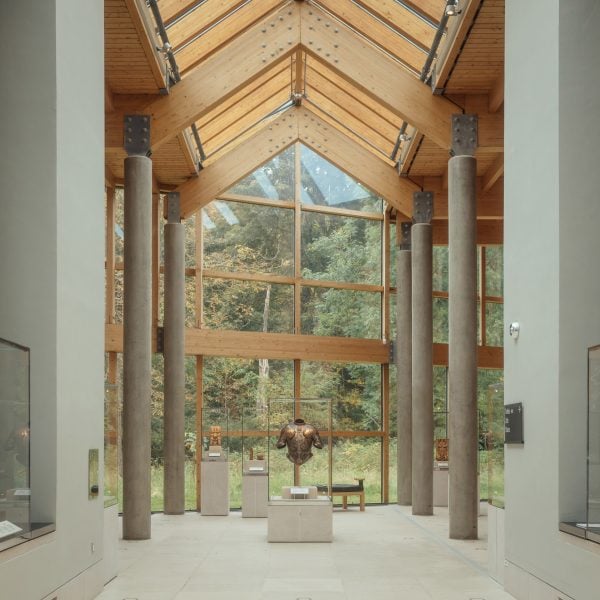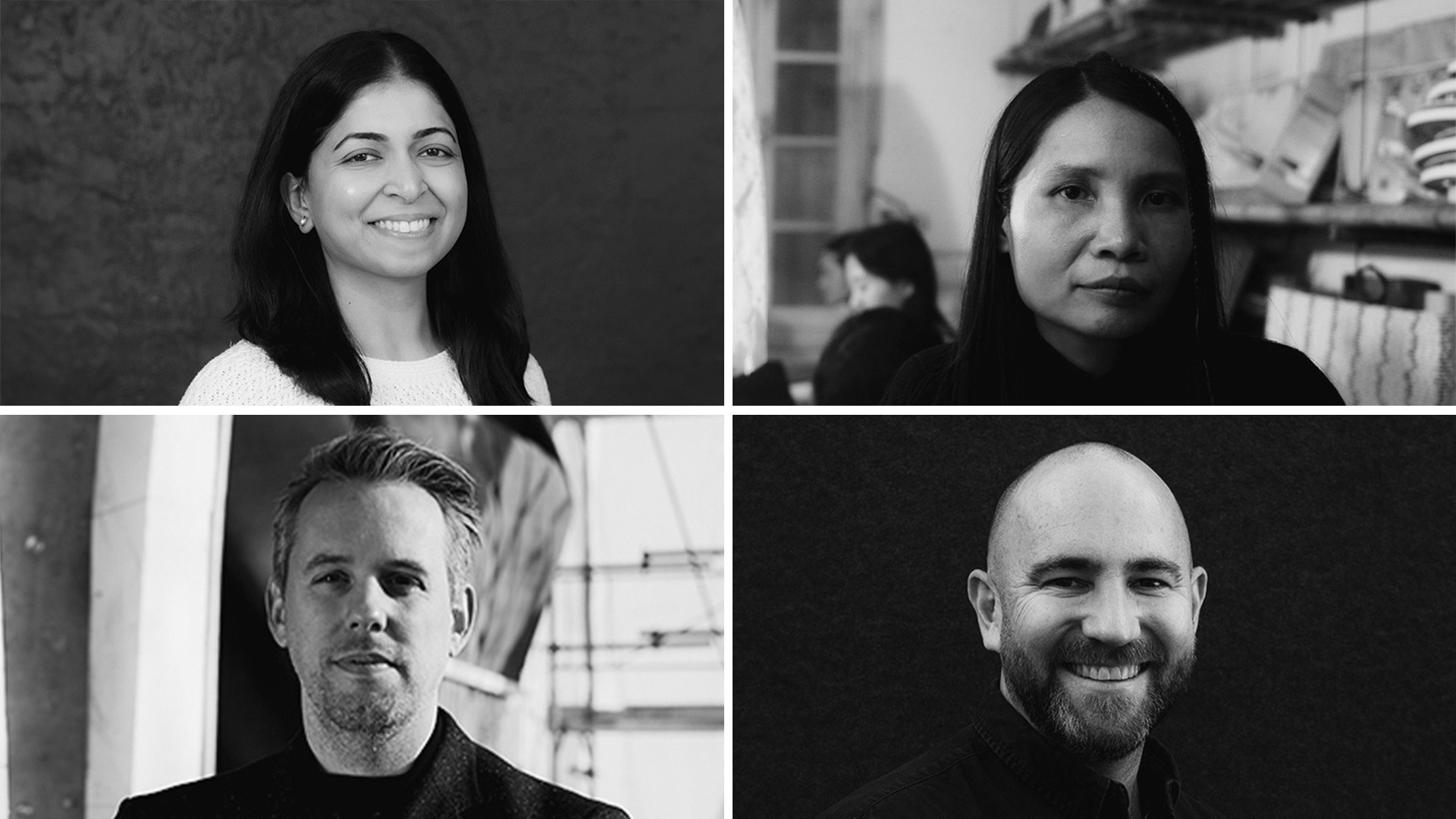Seminal furniture designs by Brazilian modernists sit alongside contemporary art in a shoppable exhibition within the 40th-floor penthouse of a recently-opened San Francisco residential tower by architecture firm SOM.
Travelling French-Lebanese gallery Gabriel & Guillaume has decorated the interior of the penthouse of the new Fifteen Fifty building in bright colours and patterns, and furnished it with a mix of new and mid-century pieces, all of which are for sale as part of the showcase.
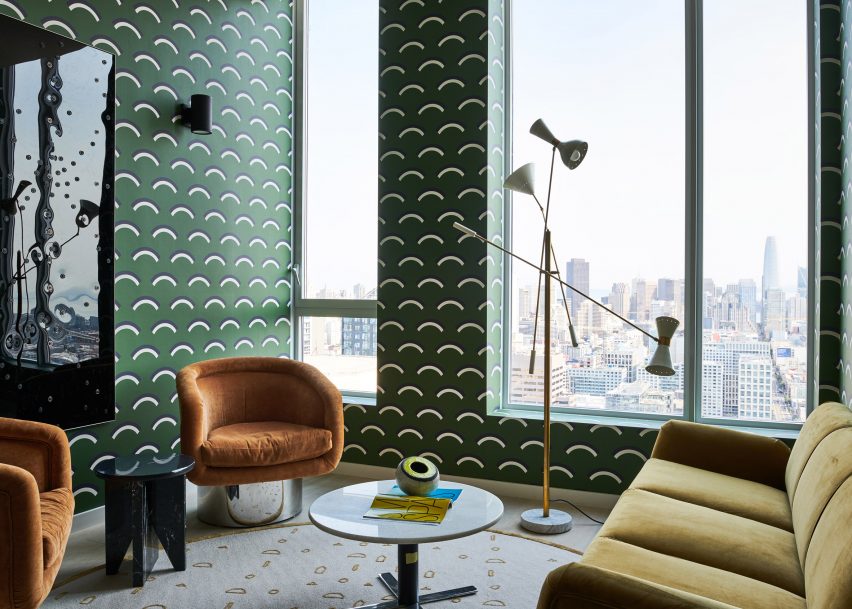
The exhibition, which will run through summer 2021, is a collaboration between the gallery, the building’s developers Related California and branding agency FrenchCalifornia, which specialises in creating exhibitions within model apartments.
The team was tasked with decorating the three-bedroom, three-bathroom penthouse – with interior architecture designed by Los Angeles firm Marmol Radziner – to create a scheme that is “livable and approachable”.
“We always work to conceptualise and execute spaces that help visitors see that collectible design can be attainable and fun, so this project came very naturally to us,” FrenchCalifornia told Dezeen.
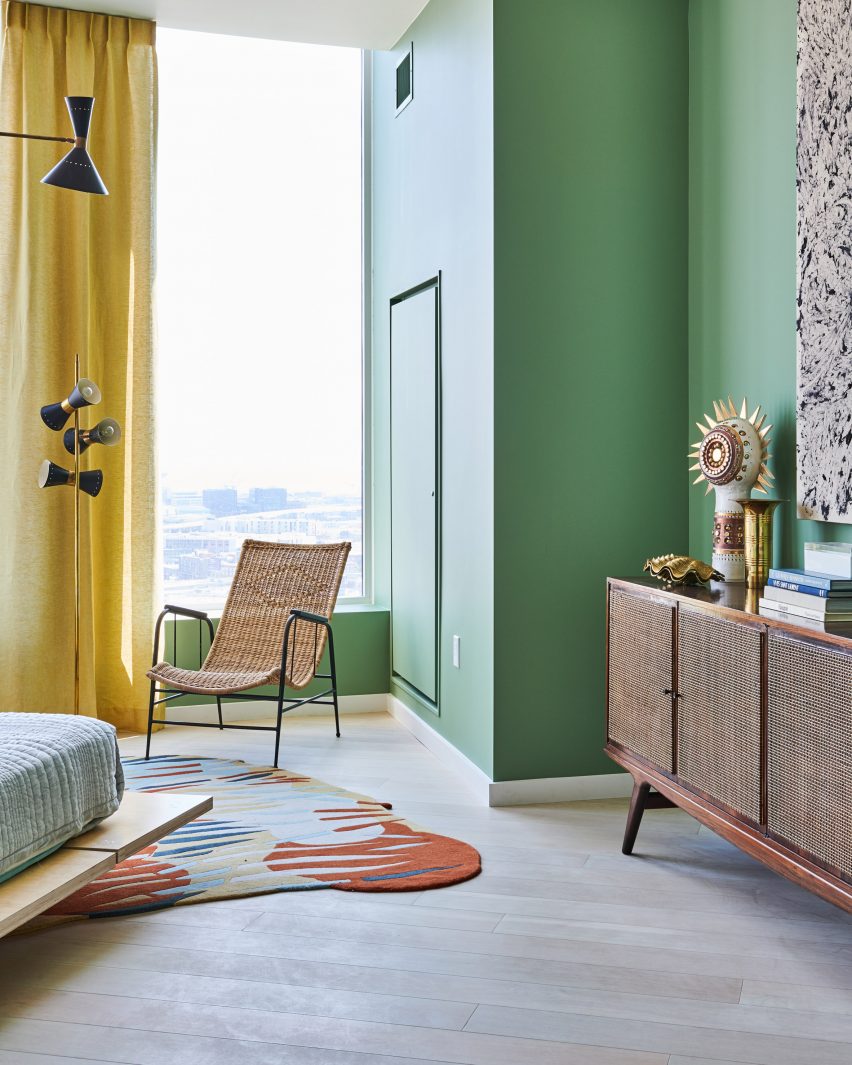
Pieces on show hail from Italy, France and Brazil, dating from the 1940s to present day.
They sit alongside a contemporary art collection curated by gallerist Jessica Silverman, which includes works by American sculptor Davina Semo, multi-media artist Julian Hoeber, painter and photographer Ian Wallace, Israeli artist Amikam Toren and Berlin-based Claudia Wieser.
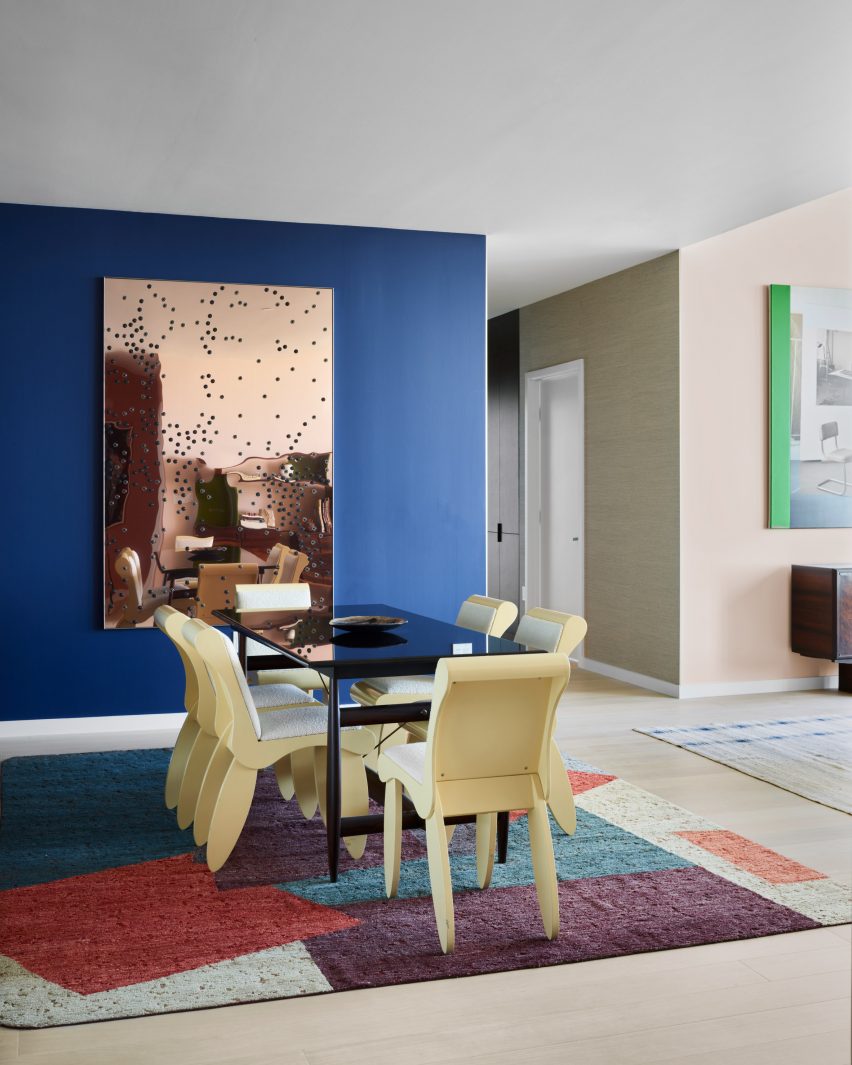
Vivid paint colours such as the deep blue in the open kitchen, almond green in the bedroom and 1980s-style graphic green wallpaper in the office were chosen to reflect the spirit of the city while complementing the furniture and helping to define the different rooms.
Describing their style as “eclectic”, Gabriel & Guillaume pulled together a diverse selection of furniture from different countries and eras.
Pieces designed in the 1980s by French designer Martin Szekely sit alongside work by Brazilian modernists such as Martin Eisler and Carlo Hauner, who founded illustrious furniture brand Forma, and Jorge Zalszupin.
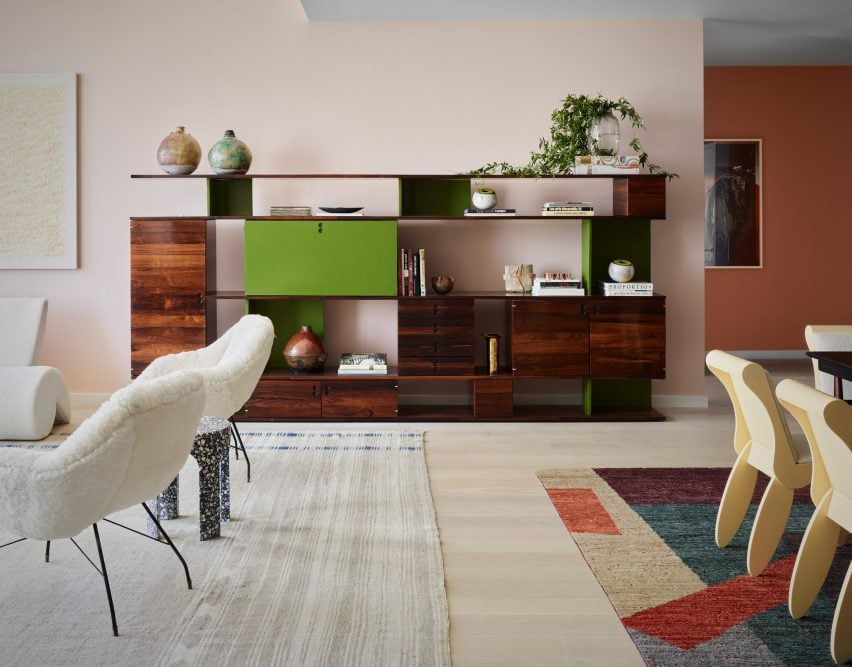
Contemporary furniture pieces include designs by Beirut-based Ranya Sarakbi and Niko Koronis, who is known for his work with resin. Rugs by Iwan Maktabi and textile designer Marguerite Le Maire, as well as pieces by ceramicist Maloles Antignac were chosen to complement the furniture.
“When we buy pieces, we don’t think of how they will go together,” Nancy Gabriel and Guillaume Excoffier of Gabriel & Guillaume told Dezeen. “Most great pieces usually go together if proportions work – and when one piece looks uneasy with another one, just add a third one.”
In the past decade, an increasing number of galleries and art shows have moved their showcases from traditional gallery spaces to domestic settings.
“Buyers, designers and decorators alike prefer to see pieces in situ and visualise a piece in a lived-in space, and the model residence is obviously the perfect platform to do this,” said FrenchCalifornia.
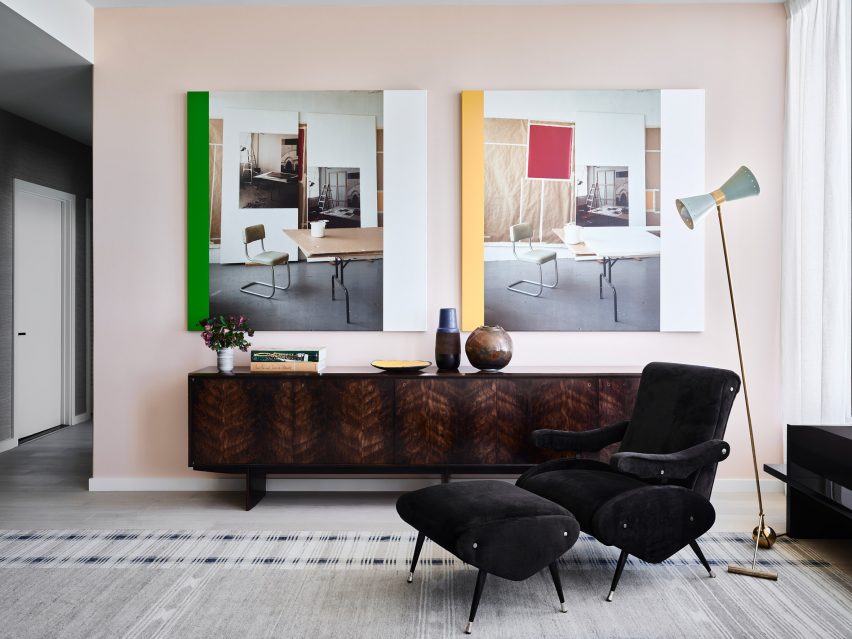
“With retail moving fast online, when you want to actually bring people to an exhibition, you need to offer them an experience,” Gabriel & Guillaume added.
“The coldness of a white cube does not do that. In comparison, getting into a home is always a more special moment. While you can see the pieces, you can also discover the way they go together and the curation of the space. The homely format definitely has more soul.”
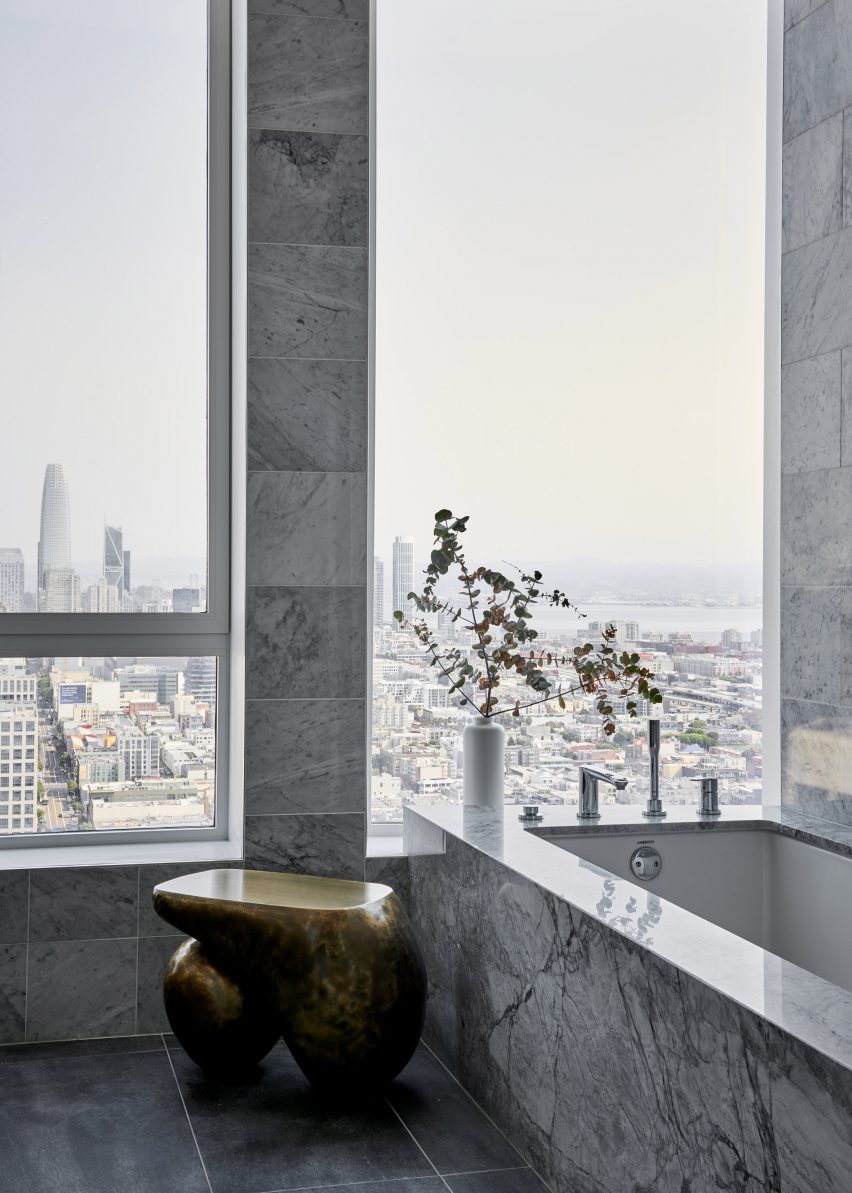
This sentiment is echoed by the founders of Nomad, a travelling art fair founded in 2017 that showcases collectible design in exclusive villas and apartments.
Speaking about the fair’s residential context, Nomad co-founder Nicolas Bellavance-Lecompte told Dezeen: “What is good is that you can relate on a domestic scale with the objects. Most design collectors don’t buy for their storage for investment, they buy pieces to live with them. So to have them in a domestic environment is definitely perfect because you can relate to them.”
Photography by Douglas Friedman.



